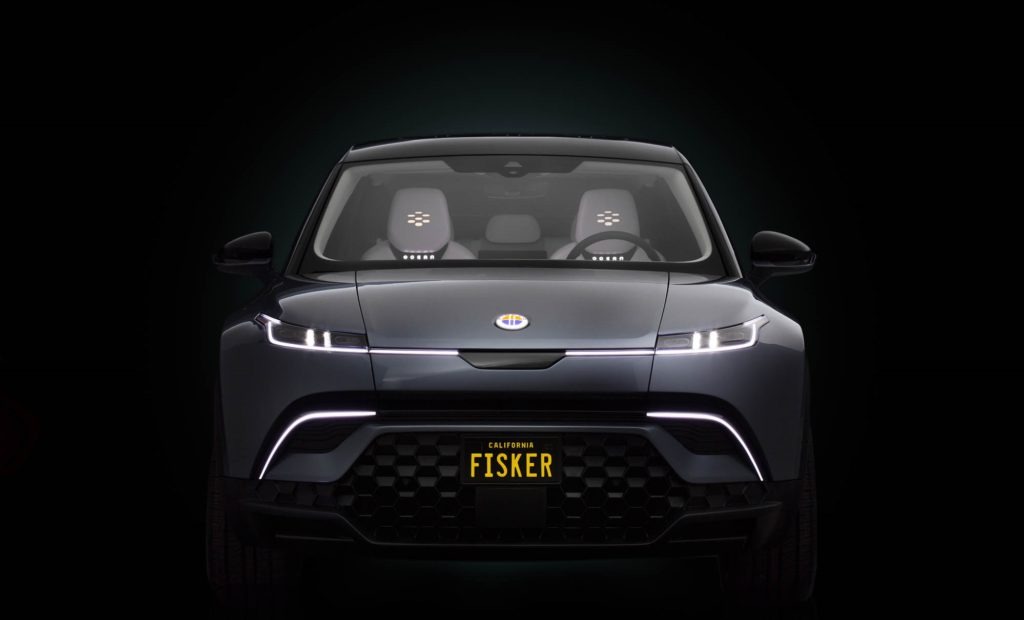Fisker teams up with Magna to build electric SUV
19 October 2020

19 October 2020
Fisker will work with contract manufacturer Magna to produce the Ocean, an all-electric SUV. Production of the startup’s battery-electric vehicle (BEV) will take place in Europe and is scheduled to start in the final quarter of 2022.
The agreement lays the foundations for strategic platform-sharing and manufacturing cooperation, including the use of Magna’s electric-vehicle (EV) architecture. This announcement puts to bed any possibility that Fisker might end up using Volkswagen’s (VW’s) modular electric-drive (MEB) platform for the anticipated BEV.
A global effort
′We chose to leverage the Magna EV architecture after detailed due diligence on several options – and in consideration of our own product and technology strategy. Further, having Magna take such a committed position in the project and our company demonstrates the depth of this cooperation,’ said Henrik Fisker, chairman and CEO of Fisker.
The result of this agreement will see the American startup’s BEV built by the Canadian contract assembler in Europe, where it currently produces several vehicles on behalf of global brands. Fisker will rely massively on Magna and its production experience, as it has manufactured more than 3.7 million vehicles of 30 different models over the years. Now the US startup hopes to develop new EV technologies and architectures with the Canadian buisness.
′We are very happy to be able to work with Fisker on such an exciting sustainable product and to see what additional opportunities this cooperation may bring,’ said Swamy Kotagiri, president of Magna International. ′This is a great example of our strategy to leverage our strong portfolio to scale for future mobility needs and utilise our full vehicle engineering and manufacturing capabilities. This is a unique competitive position for us, particularly with new mobility players and OEMs seeking to expand their electrified offerings.’
In July, Fisker entered a $2.9 billion (€2.5 billion) merger, with special-purpose acquisition company Spartan Energy Acquisition Corporation (Spartan) to become publicly-listed. The move carried with it the promise of channelling more than $1 billion in gross proceeds into the company.
′This relationship with Magna marks an important milestone for Fisker as the company continues to make progress towards achieving its future goals. We are confident that Fisker will continue this positive momentum as we work towards the close of our transaction and beyond,’ said Geoffrey Strong, chairman and CEO of Spartan Energy Acquisition Corporation.
Planning platforms
Using Fisker-Flexible Platform Adaptive Design (FF-PAD), the startup’s design, engineering and software teams will integrate Magna’s EV architecture with plans for the Ocean’s exterior. The new FM29 lightweight aluminium-intensive platform will not only form the basis of the Ocean, but could also become the foundation for future vehicles.
′Combined with our own Fisker-developed IP, the new FM29 platform is projected to deliver class-leading range, interior space with third-row seating and overall vehicle performance. These factors, combined with capital investments, bill of materials and manufacturing costs, will enable us to deliver the Ocean to market at a starting manufacturer suggested retail price of $37,499.’
Fisker had been in talks with VW to procure its MEB Platform for the Ocean. However, the two companies failed to reach a ′cornerstone agreement’ at the end of July. Previously, the startup had claimed the platform would allow the Ocean to enter the market in approximately half the time, with substantially reduced costs.
In March last year, VW announced it was offering its MEB platform to third-party manufacturers. Then in June, the German carmaker concluded a deal with Ford, giving the US company access to the electric platform. The carmaker said it hoped to achieve a significant reduction in the cost of e-mobility through the widest deployment of its system and the associated economies of scale.